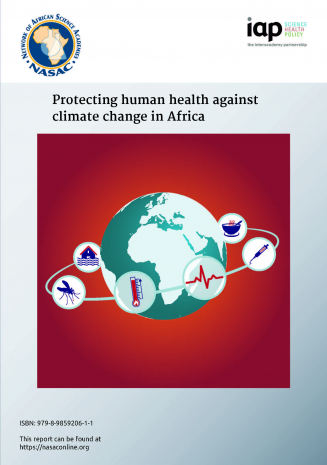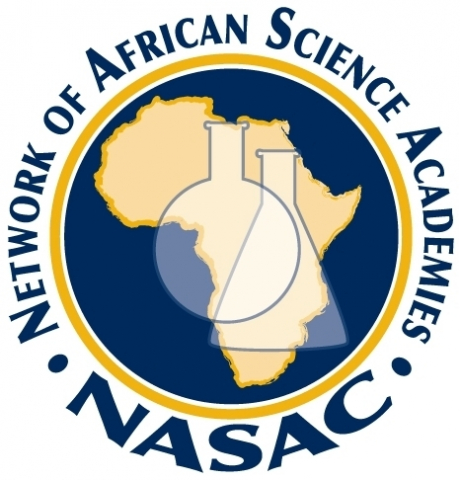There is growing evidence from reports of the United Nations Framework Convention on Climate Change (UNFCCC) and the Intergovernmental Panel on Climate Change (IPCC) that climate change is having detrimental effects on the health of the African population and is in turn cascading into other sectors such as agriculture and food security, thereby adversely affecting livelihood, food security and the economy.
In this report, the Network of African Science Academies (NASAC) reviews current evidence for the detrimental health effects and chart a way of reducing these effects through mitigation and adaptation measures using innovative indigenous approaches in Africa. Climate change differentially and adversely affects vulnerable populations across the continent; the report draws attention to this vulnerability and suggests ways of coping with it.
For substantial progress to be made in reducing the adverse health impacts, the root causes of climate change and its impacts must be addressed at policy levels. However, policymakers in Africa have not been adequately sensitised to implement changes to protect human health from the adverse effects of climate change. Health effects resulting from climate change will undermine attainment of the UN Sustainable Development Goals (SDGs). SDGs are tied to climate change: for example SDG 13 calls for climate action, while SDG 2 calls for zero hunger and SDG 3 calls for good health. Monitoring of SDG performance shows many African countries are trailing behind in attaining the set goals and indicators, and if climate change is not addressed at the policy
level it will further exacerbate the situation and render attaining SDGs difficult. This will negatively affect economic development, which will have a spiral effect on health.
The report's objectives can be briefly summarised as follows:
- Make best use of the current evidence base to formulate policy on climate change and health in a coordinated and harmonious manner for the whole of Africa to address urgent actions on climate change adaptation and mitigation and to raise the visibility of human health as major concerns.
- Highlight the existing knowledge gaps and raise call-to-action research to fill them.
- Improve health risk communication at all levels from grass-root to policy levels.
The report's conclusions resound with what has been echoed in the field by the UNFCCC, World Health Organization (WHO) and the Lancet Commission, among others. These sources are used as the basis for understanding the situation in Africa and are discussed extensively in the ensuing chapters. NASAC's contribution is aimed at adding value to the existing knowledge base by synthesising a single report that incorporates the plethora of information. The report highlights the fragmented and missing knowledge gaps as an impetus for action, presenting opposite views and synchrony where they exist. This is done by considering the core values of academies of being free of vested interest and accountable to society as beacon of truth. In doing so, NASAC aims to catalyse and spur further discussions and actions among academies, the scientific community, relevant stakeholders and policymakers at national and Africa-wide levels.
The present report was written after consultation with a group of experts nominated by the NASAC’s member academies. Through their cooperation between NASAC and the German National Academy Leopoldina, top African scientists with expertise on this topic agreed to review the existing evidence base on climate change and health in Africa, and to revisit the adaptation question and assess the mitigation strategies to produce a set of recommendations.

